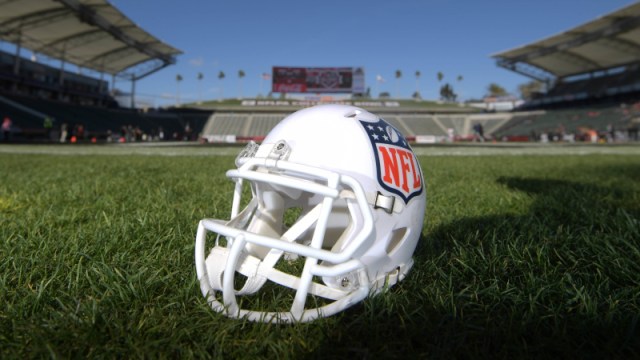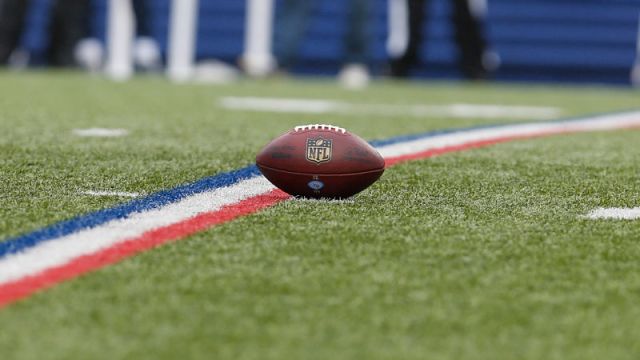Editor’s Note: May 10 marks mark the 50th anniversary of Boston Bruins legend Bobby Orr’s iconic, 1970 Stanley Cup Final-clinching goal against the St. Louis Blues. In the lead up to the anniversary, NESN.com is remembering that team and Orr’s goal, which will include NESN’s airing of the “1970 Stanley Cup Playoff Rewind” on Saturday, May 9, at 8 p.m. ET. On May 10, NHL Network will air “The 1970 Bruins: Big Bad & Bobby” a documentary celebrating that team. Click here for more Bruins coverage.
Boston Bruins fans are in for a treat Sunday night.
On the 50th anniversary of the B’s Stanley Cup win over the St. Louis Blues, which was capped off with Bobby Orr’s iconic flying goal, the NHL Network will air “The 1970 Bruins: Big, Bad & Bobby.”
The documentary looks back at not just the 1969-70 team, but also how that group was built, which turned a cellar-dwelling team into the “Big Bad Bruins.”
There are interviews abound, though the highlight is a roundtable with Bobby Orr, Phil Esposito, Gerry Cheevers and Derek Sanderson, which gets plenty of screen time over the roughly 50 minute documentary. Harry Sinden, Ken Hodge and Johnny Bucyk also are interviewed in the film, along with plenty of others not directly affiliated with that team.
We had the opportunity to see the film, and here are some of our takeaways.
— While Bruins fans undoubtedly understand the impact players like Orr and Esposito had on the franchise, most of the understanding for a fan under the age of 40 is by way of a grandparent or parent. But the documentary does a good job of actually beginning years before 1969, contextualizing how pretty much all Boston sports teams in the 1950s into the 1960s didn’t feature the success the city has grown to know today.
By providing the context that the Bruins, frankly, were not all that great in the early 60s until Orr and Esposito rolled into town, it further articulates to the young viewer just how transcendent those two, Orr especially, were.
More Bruins: Harry Sinden Reflects On Bobby Orr Goal During 1970 Stanley Cup Win
— It shouldn’t be totally surprising that the players interviewed had a vivid memory of the 1970 playoffs. But it extended well beyond that, down to some small details they organically weaved into their storytelling.
Orr recounts Pat Quinn’s infamous hit on him in the 1968 postseason, then being in a hotel the next day and having a shady individual come up to him and ask if the defenseman wanted Quinn “taken care of.”
The stories go on and on, especially in the roundtable. But the documentary never gets bogged down, and the quick wit among between the four teammates, who half a century later still don’t mind ribbing one another, only elevates the anecdotes.
And their remembrance of things all line up pretty well. They all seemed to agree that the 1967 trade with the Black Hawks that landed Esposito and Hodge in Boston was a turning point for the franchise, as was Orr blasting onto the scene.
“Once Bobby showed up, then Phil showed up, you knew it,” Cheevers said. “It was going to happen soon, but now we’ve got to do it.”
— Honestly, they could’ve just run an uninterrupted hour of the Orr-Cheevers-Esposito-Sanderson roundtable and that would’ve been enough, but the amount of behind-the-scenes and archived footage used really enhances the documentary.
You not only see Orr up close just gashing opposing teams, but also what it was like when they were off the ice and in the community. It emphasized how larger-than-life that team and its numerous personalities were both at and away from the arena.
— A subtle but ultimately important touch was the panel of interviewees the documentary featured that weren’t members of that team.
There were hockey historians and Mike Euruzione, among others. However, by including Howie Long and Jackie MacMullan, two people who have become synonymous with other sports, it underscores the draw that Bruins team had.
It’s funny too, as both Long and MacMullan admit the irony of it all. Long went on to play in the NFL and now is an analyst on FOX, but he talks about always being “a foot and a half” from the television during Bruins games, living and dying with each result.
MacMullan acknowledging that while she’s become known for her work with the NBA, it always was hockey she wanted to play as a kid — not basketball — and it was because of that group of Bruins.
— Overall, it’s a compelling watch.
While it will be a nice trip down memory lane for those old enough to have lived during that era of Bruins hockey, it also should be a must-watch for younger fans, as the film does a fantastic job encapsulating just how entertaining that team was and how they shaped the franchise even to this day.






